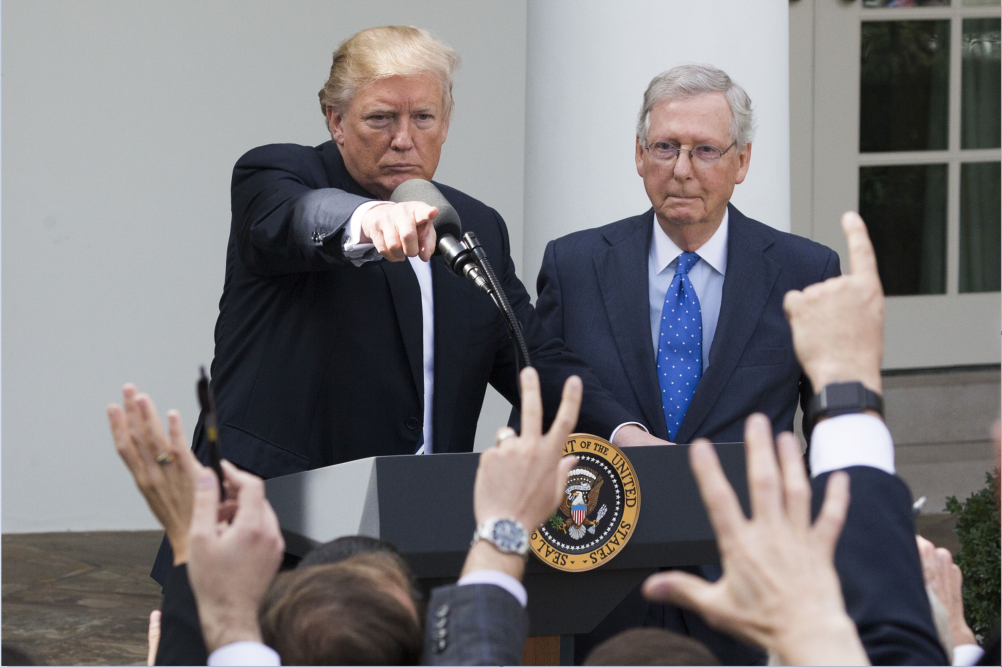As President-elect Donald Trump prepares for his return to the White House, speculation swirls around his pledge to expand mental health resources during his second term. With mental health crises rising across the nation, Trump’s ambitious proposals have ignited both praise and controversy, raising questions about the future of healthcare in America.
Trump’s Mental Health Vision
During his campaign, Trump highlighted mental health as a priority, emphasizing the need for better access to care and reducing stigma. Although details remain scarce, his proposed initiatives reportedly include increasing funding for community mental health centers, implementing nationwide telehealth services, and addressing the mental health crisis among veterans. Trump’s team has also hinted at strengthening public-private partnerships to accelerate mental health innovations.
Critics, however, have pointed out gaps in Trump’s previous healthcare policies, questioning whether his administration can deliver on these promises. “This could be a turning point if implemented correctly,” said Dr. Alan Fisher, a policy analyst. “But the success of these programs will depend on adequate funding and bipartisan support.”
Mixed Reactions from Experts and the Public
Experts and the public have offered divided opinions on Trump’s mental health agenda. Supporters argue that addressing the mental health crisis is long overdue. However, skeptics are concerned about potential gaps in implementation and whether proposed funding levels will meet the country’s needs.
Public reaction on social media has been equally polarized. User @MentalHealthMatters tweeted, “Finally, mental health is getting the attention it deserves. Let’s hope this isn’t just a campaign promise!” Meanwhile, @PolicyWatchdog voiced skepticism, writing, “Trump talks big, but where’s the funding? Mental health programs can’t run on empty promises.”
Others highlighted the broader implications of the initiative. “If Trump expands mental health care, it could change millions of lives. We need this now,” posted @HopeForAll. Conversely, @HealthcareCritic warned, “This might sound good on paper, but watch how it’s funded. Cuts in other areas are likely.”
Veterans’ mental health also sparked online debate. “Our veterans need help more than ever. If Trump delivers, this will be his biggest win,” wrote @SupportOurVets. However, @PolicyRealist countered, “Veterans deserve better, but will they really see change? Past promises didn’t lead to action.”
Challenges Ahead
Trump’s plans face several hurdles, including securing congressional support and overcoming potential resistance from healthcare providers. Mental health advocates have emphasized the importance of addressing systemic issues, such as workforce shortages and inadequate insurance coverage for mental health treatments.
While details of Trump’s mental health policies are still emerging, the initiative could have far-reaching effects if executed effectively. With mental health challenges increasingly taking center stage, the nation will be watching closely as Trump’s administration outlines its strategy.



 Marco Rubio to Brief Congress After U.S.-Israeli Strikes on Iran
Marco Rubio to Brief Congress After U.S.-Israeli Strikes on Iran  Argentina Tax Reform 2026: President Javier Milei Pushes Lower Taxes and Structural Changes
Argentina Tax Reform 2026: President Javier Milei Pushes Lower Taxes and Structural Changes  Rubio Says U.S. Would Not Target School After Deadly Iran Strike Reports
Rubio Says U.S. Would Not Target School After Deadly Iran Strike Reports  Pentagon Downplays ‘Endless War’ Fears After U.S. Strikes on Iran Escalate Conflict
Pentagon Downplays ‘Endless War’ Fears After U.S. Strikes on Iran Escalate Conflict  Zelenskiy Urges Change in Iran After U.S. and Israeli Strikes, Cites Drone Support for Russia
Zelenskiy Urges Change in Iran After U.S. and Israeli Strikes, Cites Drone Support for Russia  Trump Says U.S. Combat Operations in Iran Will Continue Until Objectives Are Met
Trump Says U.S. Combat Operations in Iran Will Continue Until Objectives Are Met  Melania Trump Chairs Historic U.N. Security Council Meeting on Children Amid Iran Conflict
Melania Trump Chairs Historic U.N. Security Council Meeting on Children Amid Iran Conflict  Trump to Attend White House Correspondents’ Dinner 2026, Ending Long Boycott
Trump to Attend White House Correspondents’ Dinner 2026, Ending Long Boycott  U.S.-Israel War on Iran Escalates as Gulf Conflict Disrupts Oil, Air Travel and Regional Security
U.S.-Israel War on Iran Escalates as Gulf Conflict Disrupts Oil, Air Travel and Regional Security  Trump Announces U.S. Strikes on Iran Navy as Conflict Escalates
Trump Announces U.S. Strikes on Iran Navy as Conflict Escalates  Trump and Merz Meet at White House Amid Iran Strikes and Trade Tensions
Trump and Merz Meet at White House Amid Iran Strikes and Trade Tensions  Israel Prepares Weeks-Long Military Campaign Against Iran Amid Escalating Air Strikes
Israel Prepares Weeks-Long Military Campaign Against Iran Amid Escalating Air Strikes  Does international law still matter? The strike on the girls’ school in Iran shows why we need it
Does international law still matter? The strike on the girls’ school in Iran shows why we need it  Iran Detains U.S. Citizens Amid Escalating Conflict With the United States and Israel
Iran Detains U.S. Citizens Amid Escalating Conflict With the United States and Israel  Supreme Court Backs GOP Lawmaker in New York Redistricting Fight Ahead of Midterms
Supreme Court Backs GOP Lawmaker in New York Redistricting Fight Ahead of Midterms  Trump’s Iran Strikes Spark War Powers Clash in Congress
Trump’s Iran Strikes Spark War Powers Clash in Congress  Failure of US-Iran talks was all-too predictable – but Trump could still have stuck with diplomacy over strikes
Failure of US-Iran talks was all-too predictable – but Trump could still have stuck with diplomacy over strikes 






























